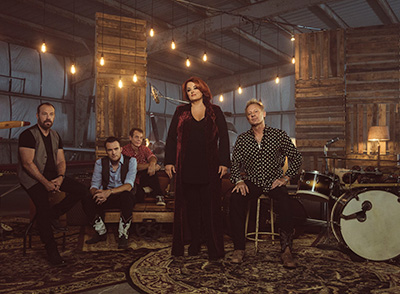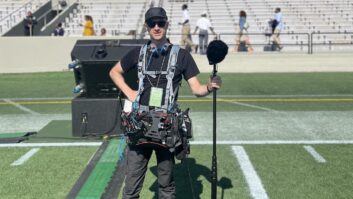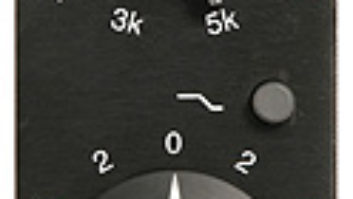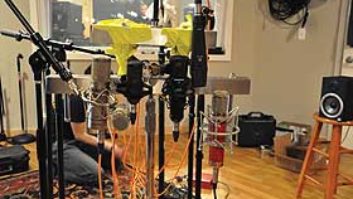
Wynonna Judd recalls a night in Coronado after a candlelit dinner with her new husband Cactus Moser where they took a walk on the beach. She hadn’t been in the ocean since waves had overtaken her as a 5-year-old. Moser led her into the water that night and held her while a wave crashed over her head and helped her face her fears.
For her, it is a metaphor for everything life and music. Just like when he came to her and told her he wanted to scrap the album she was making and start over. She trusted him. He felt the album she was making was very safe, and when her manager and Curb Records heard “Love It Out Loud,” a song he, Judd and Brian Henningsen wrote for the Judds reality show, they became aware of what Moser could do and gave him the creative reins.
“He has taken me to a new level,” Judd says. “He took me into the studio and did something no man has ever done. I’ve had great producers, don’t get me wrong, but Cactus Moser has taken me somewhere I’ve never been, and as a 50-year-old woman who has been doing this over 30 years, that’s kinda interesting.”
Moser began producing back in his latter days as a member of Highway 101, and more recently produced a band called the Henningsens, as well as Pete Scobell. So he began an album for Judd geared more toward country music when he had a life-altering motorcycle accident shortly after their marriage in 2012. Everything was put on hold. He lost his leg and his left hand was crushed. Doctors told him he would never play again, but he was back on the road playing drums with Judd in three months. In the meantime, he was adjusting his thought process toward recording.
“Country music is now an 18- to 25-year-old marketplace,” Moser says. “Wy is still a very hip, can-do-all-this-stuff kind of singer, but I can still see the business writing on the wall. I thought, ‘Why don’t we do something that’s radically artistic with amazingly crafted songs and…’”
He realized that what he was visualizing was “modern vintage music” that was created by upright bass in some songs, flatwound strings, and a combination of drums, including a Ludwig 1930s kick drum (no muffles), another set with tacked pig-skinned bottom heads on a 1937 kick, two toms and a snare.
“I started getting about four or five of these sets within a short period of time,” Moser says, including a set that DW made him upon which he uses calfskin heads both on tour and in the studio.
Moser enlisted four-time Grammy winner Ryan Freeland (Bonnie Raitt, Ray LaMontagne, Ramblin’ Jack Elliott) to help record the project—the bulk of which was done at Ocean Way Nashville, studio A—after the songs were formed in Moser’s home studio. Ocean Way A has a Neve 8078.
Moser says engineer Leslie Richter was very helpful to both of them.
“To find someone who didn’t try to get me the greatest new kick drum and snare drum sounds and brightest overheads and crispest cymbals was a real issue for me,” Moser says. “There are amazing engineers in Nashville, but there is a lot of that perfection. I didn’t want that.”
Freeland used beyerdynamic M 160s on the toms, AKG D12s on the kick, Neumann U 67s for overheads and lots of ribbon mics for capturing the room and for acoustic instruments in general, he says.
“Cactus has really thought about his sound, so you just have to figure out how to capture it,” Freeland says. “It’s not so much manipulation. It’s just a matter of how to capture what he’s already figured out sonically on his end.”
Freeland says his objective was to capture the live playing in the room, which was performed by the road band—the Big Noise, so named courtesy of what Moser’s little boy growing up had called Led Zeppelin—comprising Justin Weaver on guitar, Dow Tomlin on bass, Tommy Hannum on steel and Moser.
Freeland and Moser returned to Freeland’s L.A. studio, Stampede Origin, to mix.
The entire process was a change for Judd.
“I had had a formula, which is weird to say,” she admits. “I kinda had it down, and then Cactus says, ‘I want you to…’”
One of those things was to sing live with the band.
She said, “Whaaat?”
“I said, ‘Oh my gosh.’ And that’s how I made the record,” she recalls. “If I went in and fixed something, it was because I said something out of frustration or sang something wrong.”
She says Moser asked her to become more vulnerable and sing with “less growl.”
“I said, ‘Wait a minute, I worked really hard to get the growl, I worked really hard to protect myself and be tough,” Wynonna says. “Now you want me to be tender and vulnerable? Are you kidding me?’ So my voice sounds different sonically. It’s in a very sweet-spot place a lot of times. I don’t know if I’ve sung that way since I was with mom in my 20s.”

Moser mentions a track called “Keeps Me Alive.”
“She did re-sing it, and it just didn’t have that ‘Oh, my God’ magic,” Moser says. “So we kept the original.”
For vocals they used a combination of side-by-side Neumann M 49 and AEA A440 mics.
Timothy B. Schmitt cut his vocals long distance from L.A. on “I Can See Everything,” a song Schmitt wrote.
“He sent me back the vocal tracks and Wy immediately started weeping they were so beautiful,” Moser says.
Susan Tedeschi was also a guest vocalist on “Ain’t No Thing.”
One of Judd’s favorites is “Cool Ya,” an undefinable song with a beat that will leave you dancing around the room. Judd says she initially heard the song in a raw acoustic guitar form that evolved into a song that “does something to me that makes me jiggle.”
“Then I walk in the studio—which is really a shed where you park your tractor—and I’m thinking this better be good or I’m going to kick your butt, and I hear the track and I go, ‘Oh my God, oh my God.’ I went nuts.”
Judd feels revitalized, renewed, exhilarated and spirited in all aspects of her life, but musically she is hopeful again.
“I’m done with the ’80s, I survived the ’90’s and I want to find out what it is that is going to keep me in this for the next 50 years, because it certainly can’t be about radio and it certainly can’t be about awards and it certainly can’t be about statistics,” Judd says. “[Cactus] helped me get back to the well and figure out what it is.”



